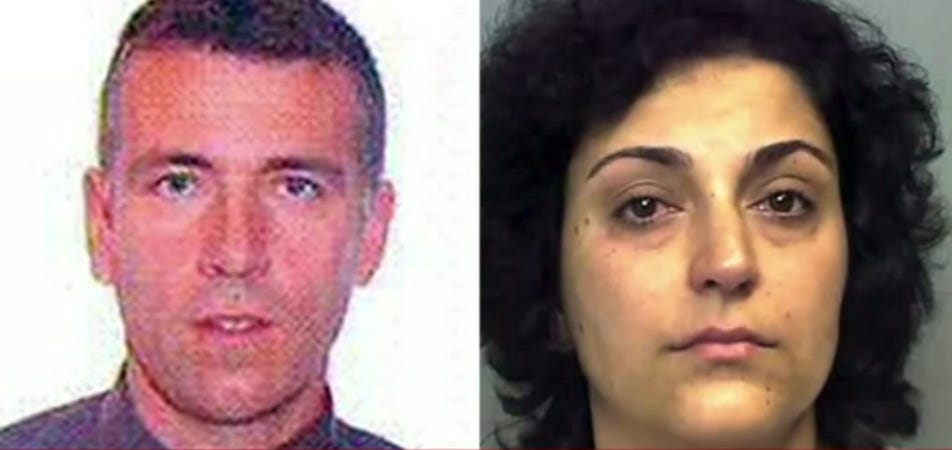An ill five-year old, his family and the state — an unfolding story of Ashya King.
The video does nothing fancy in shot cuts. It is the story within, the content which is compelling and which one of my film mentors Noell Carroll would claim is the cinema.
Ashya King, a five-year old has been diagnosed with cancer. He has been receiving treatment in a hospital for which his father expresses gratitude.
The time line and narrative is all over the Net. The boy was taken by his parents from Southampton hospital, driven to Portsmouth port where they crossed the English channel to France and then on to Spain.
What we largely know has been the result of mass media journalism. We know the doctors are concerned. A battery-powered feeding devices will run out of battery-life soon. The boy’s life is in grave danger. His family are Jehovah Witnesses, we’re told.
There is a history, reporters allude to of Jehovah devotees resisting medical aid. Though several reporters refute this based on speaking to close family and friends, it is the white elephant in the room.
There is no white elephant in the room.
However, your thoughts turn to a white elephant. The act of saying it’s not in the room does little to help. Lawyers are often rebuked by a judge for introducing evidence in a case, when they might know it is inadmissible. But is has an effect, however much it's refuted. The family’s religious background appears to be similar example.
The parents are ‘on the run’ by implication of journalism reportage, deranged, uncaring; the police mug shots feed into this narrative.

We’re made to ask why are they doing what is a thoroughly inhumane thing to a five-year old. In the absence of any knowledge, we hang onto the journalists’ expertise. They are after all professionals in words, meanings and constructs.
Until that is you watch this and when you do, you realise large swathes of information you learnt earlier amounted to speculation, supposition, nuanced narratives that philosopher Jurgen Habermas talked about in his public sphere of discourse. This is where institutions dictate the terms and to which mass media is beholden. The viewer is but a passive player.
In the video, the battery-powered device is still working, the family have a supply of feeds. They, the family are not on the run. In fact as they put it they are running to save their boy’s life? The father wants to do everything to save his boy’s life. The perception is not one of a deranged father.
How could reporting have got this so wrong, front-loading the narrative with officials discolouring the family’s intentions?
Reporters will argue, we reported the facts and what we had. This video becomes new information. If you look and listen carefully to the news today the wheels of accountable journalism should turn a full 180 grinding- gear degrees. It’s never the journalists’ fault.
Arguably, they the authorities, medics and police know better. That is what we as a society have learned to accept, and more often than not via tacit knowledge, the ‘abduction’ of a young boy in these circumstances raises dark thoughts.
But that is not the case here, and is the starkest reminder yet of a world, where dominions, though still respected, are not exclusive repositories of knowledge. And that a newer type of relationship between the citizen and the state should come to fruition. The people of Ferguson know this all too well.
We know that much from journalism. There have been times when the citizen outdoes the professional journalist as Eliot Higgins, known as Brown Moses has amply shown.
In an age of accessible specialist knowledge, it has not become unusual for people to lean about once obscure medical conditions, or intractable laws.
Could mass media journalism have have presented information, factual, as it in a different way to the status quo?
Could they have sought a more humanitarian angle: Ashya’s story without the formal journalism packaging of 30-second soundbites buttressed against authority figures?
The role of professional journalism is needed. This is not an out and out criticism of its form, more a pressing need to critically review story dissemination and construct.
Without YouTube, specifically, which came online a decade ago, this family’s harrowing story would not have been known in this detail so soon. Naveed the brother of Ashya makes a point. They ( journalists) are editing the videos, so come back to his account for regular updates.
How many television stations will today air the whole ten minutes of the father’s statement? Very few if any. Perhaps the mentioning of two Doctors impugns their reputations to thwart professional journalists from running the full video.
Perhaps we need a new form of television that bridges the social community benefits of citizens, with the mass media of television. Either way, this case opens up a dialogue to examine journalism language and construct in an Internet age.
